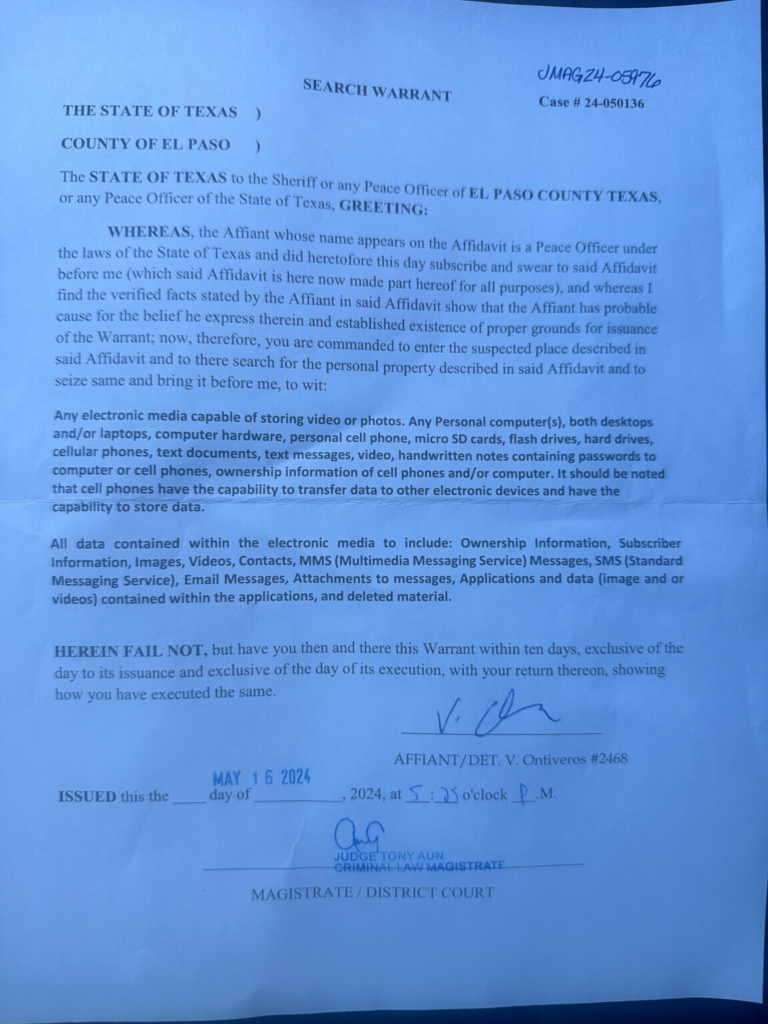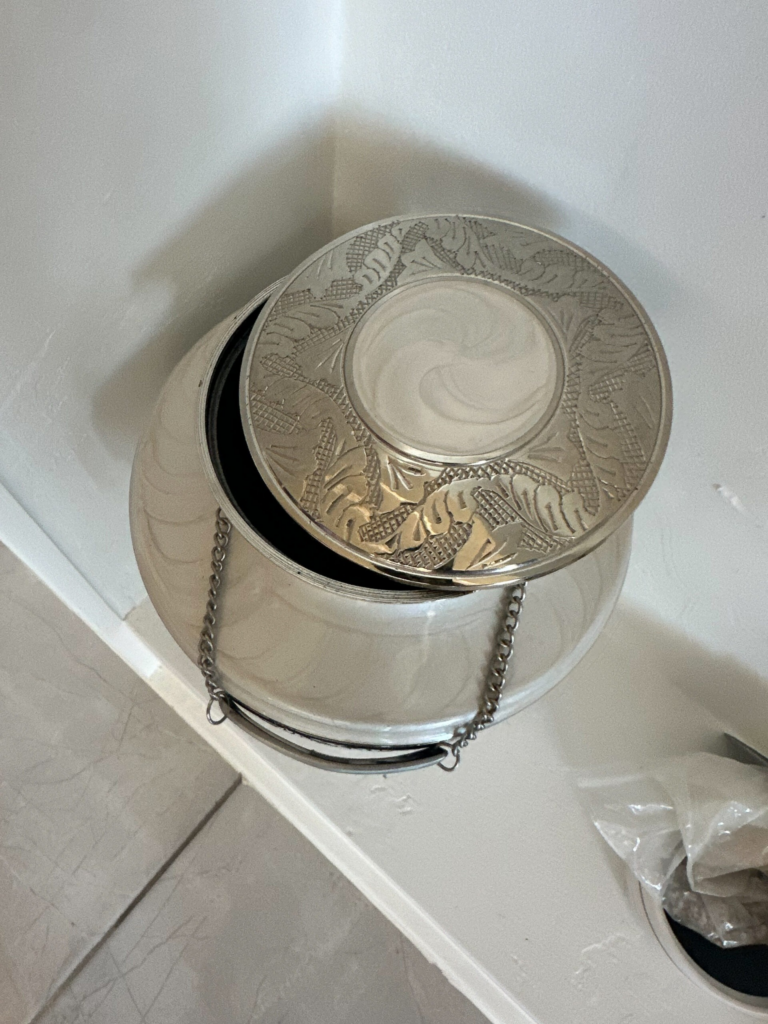4 December 2024, El Paso, Texas, Steven Zimmerman – “I’d rather the alleged felon get away with a crime than take the low road of searching an urn,” says Jim Scott.
In May of this year, I wrote an article entitled “EPPD: Lawless Invasion” about a search warrant that was executed at an officer’s home under a minor violation of the Texas Occupational and Safety Code.
In that article, I spoke about Aysha Jusino-Camp and the urn containing her father’s cremains. “My father’s urn was opened and obviously searched & left opened. This was sacred and very personal, and they abused their scope of power and desecrated his remains. This is disgusting in all aspects.”
According to the search warrant, officers and crime scene techs searched the Camps’ home for “Any electronic media capable of storing video or photos. Any Personal computer(s), both desktops and/or laptops, computer hardware, personal cell phone, micro SD cards, flash drives, hard drives, cellular phones, text documents, text messages, video, handwritten notes containing passwords to computer or cell phones, ownership information of cell phones and/or computers. It should be noted that cell phones have the capability to transfer data to other electronic devices and have the capability to store data.”

It is understandable that micro SD cards, thumb drives, and some external drives, which are small, could be stored in an urn among the cremains of a loved one who has passed.
“The cremains might also be in a sealed bag, which I would not open,” says Mary Guzman, a crime scene tech in Texas. “You would be describing the remains, but there is also a health issue. You would be inhaling matter from the cremains.”
Ms. Guzman said that in her jurisdiction, absent specific wording in the search warrant, an urn would only be opened with guidance from the judge who issued the warrant.
“We would want to make sure the court is aware of the urn and the possibility of desecrating the cremains prior to opening the urn,” says Ms. Guzman. “If we were searching for drugs, we would just run a K-9 in the area.”
Opening an urn and disturbing the cremains can be tricky and cause undue stress to the family of the deceased.
“I am not sure I would open the urn,” says a detective with the El Paso Police Department. “If there was no other way around it, I would make sure the family was not present, I would be conscientious, and I would make sure to reseal the urn. I would then speak to the family to tell them what I did, step-by-step, and apologize.”
The detective said he would apologize even if they were taking the suspect into custody, as it would be the right thing to do.
In the case of Ms. Camp, when she returned home, her father’s urn was left open. There was also a small container with the cremains of a family pet that was open.

“Ran into that one time 20 or so years ago,” says Bob O’Connor, a retired member of law enforcement. “I spoke to the owner of the home, agreed to take the urn to a local funeral home for content inspection in my presence, and returned it to his possession afterward. All are very respectful. I also consulted the prosecutor on the case for advice and approval. The urn was not sealed, and the content bag was heat sealed but looked ‘wrong’ to us. Otherwise, we probably would have left it alone. In the future we decided to take the issue to the judge who signed the warrant. This never happened to me again.”
Another Utah officer, B. W. Wilson, says, “If what we are searching for can be found in an urn, we are going to have to look.”
And this is true; you will have to look, depending on your desire.
“I’ve looked at the warrant that was issued for Camp’s residence,” says Officer Wilson, “and while it does not dismiss the possibility of searching an urn, looking for smaller items, I feel that a family member should have been in attendance. Looking at the photos and reviewing your prior article, this feels a bit vindictive for the searching officers.”
Officer Wilson made a good point by saying that he would have a family member present when searching an urn for items listed on a search warrant. Could a member of the Camp family have stayed in the home while officers searched for items listed in the search warrant?
No, you cannot stay in your home while police search it with a warrant in Texas, even if you do not consent or comply. Once a police officer has a search warrant, they are legally allowed to enter your home and search your property.
Here are some other things to know about search warrants in Texas:
- Police must knock and announce their presence before entering your home.
- They must give you time to answer before breaking in.
- Police must comply with the warrant’s scope, including not searching areas not listed.
- Warrants can be invalid if the affidavit does not establish probable cause or if the police were not truthful in their affidavit.
- Evidence found with an invalid warrant can be excluded.
- You can ask the court to exclude evidence by filing a motion to suppress evidence.
While the Camp family was away from home during the search, they trusted that the officers in their home would uphold the law and the honor attached to the badge they wear or carry. In this case, the department failed. Not only did officers partake of consumable items in the pantry, but they also wanted the Camp family to know that officers opened the urn at the very least.
“I don’t know what is done in El Paso, but I’ll tell you what I would do,” says Officer Rodriguez of the New York Police Department. “After seeing those photos you sent me, I would have apologized if I were anyone in that home. If I were a command position, any position in command, I would have apologized.”
Ms. Camp has requested, on more than one occasion, that the Chief of Police, Peter Pacillas, apologize for the desecration of her father’s remains. It’s a simple enough request that has fallen on deaf ears.
(As of publication, the El Paso County District Attorney refused to file any charges against Camp, and he has since returned to work)
